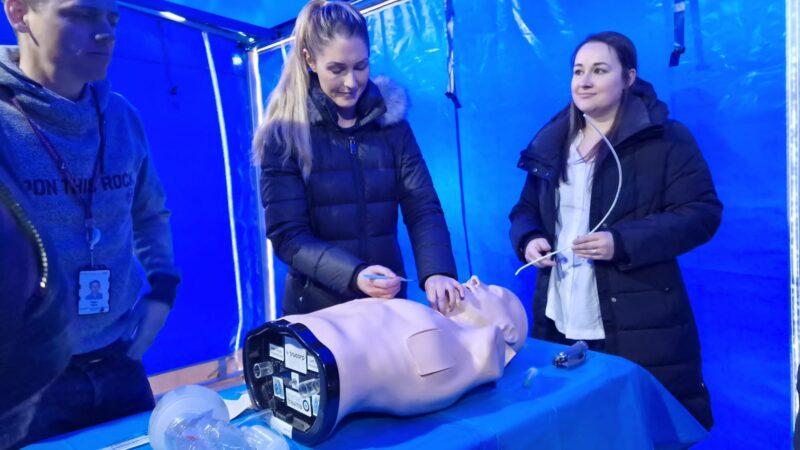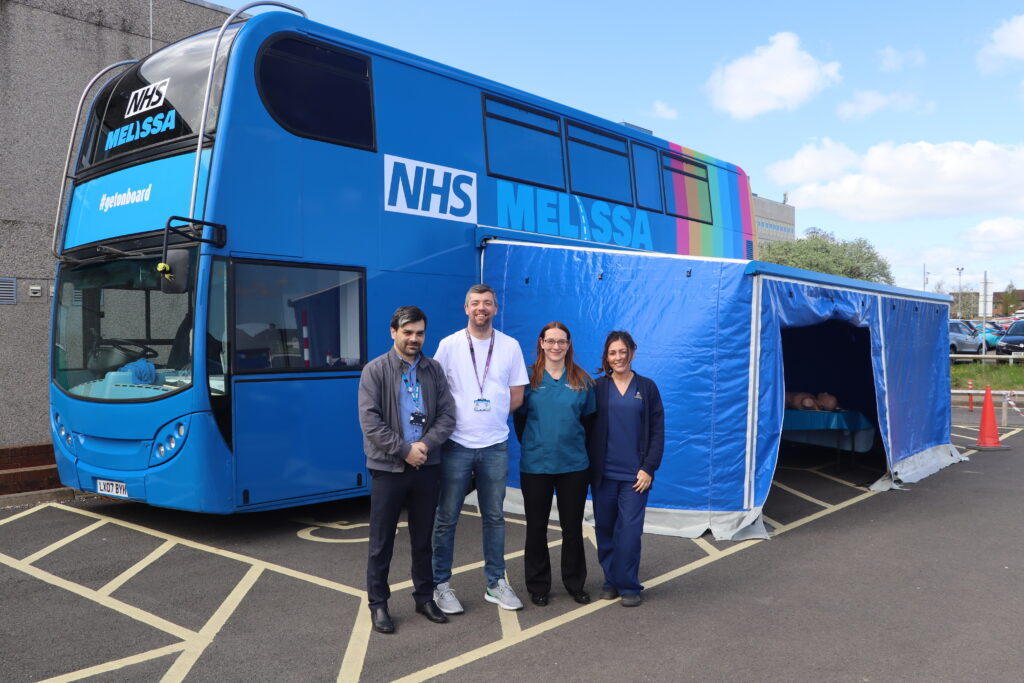
More than 50 emergency medicine doctors-in-training have attended a specialist course to prepare them for dealing with rare emergency medical conditions.
The High Acuity Low Occurrence (HALO) procedural skills day took place at the University Hospital of North Tees this week and covered procedures that take place in high-pressure situations where rapid decision making is required.
Emergency medicine
Some of these skills may only be encountered once or twice in an emergency medicine doctors career, such as resuscitative hysterotomy (an emergency caesarean performed when the mother is suffering a cardiac arrest condition), lateral canthotomy (a sight-saving procedure), front of neck access/surgical airway and pericardiocentesis (removing fluid from the heart sac).
Senior emergency department clinicians from throughout the region and the Mobile Education Learning Improving Simulation and Safety Activities (MELISSA) team carried out the training on a specialist mobile unit.
The MELISSA bus is a specialist training facility commissioned by NHS England Workforce, Transformation and Education North East and North Cumbria to travel the region, providing access to simulation and procedural skills training for NHS staff. The partnership includes the North East Simulation Network, I can prevent Delirium and Find Your Place in the North East & North Cumbria.

Patient safety
Dr Kate Williamson, emergency medicine consultant at North Tees and Hartlepool NHS Foundation Trust and chair of the faculty of patient safety is the course director.
Kate said: “HALO training days feature practical and important procedures that clinicians don’t get to do every day.
“For example, resuscitative hysterotomy, which is performing an emergency caesarean section in a mother under a cardiac arrest condition, occurs in less than 1 in 30,000 pregnant women aiming to improve survival of both mother and child.
“The training is designed to give emergency medicine doctors repeated exposure to simulated procedures throughout their training and career so that when the skill is required for a patient in real life, the doctors can perform these life-saving skills without hesitation.”
HALO
The HALO training is part of North Tees and Hartlepool NHS Foundation Trust’s commitment to continual training and development of clinical colleagues to improve patient services and the health of the region.
